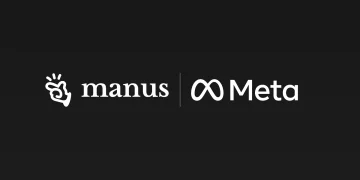Meta wants to become an electricity broker and seeks federal approval to buy and sell power directly in wholesale markets to secure energy for its growing AI infrastructure demands.
The US Federal Energy Regulatory Commission (FERC) will decide whether Meta can establish its power marketing subsidiary, Atem Energy. Apple already secured similar approval through Apple Energy LLC, showing how tech companies now view electricity as a critical business asset rather than just an operating expense.
Why Meta Needs Direct Power Market Access
Traditional utility contracts cannot keep pace with Meta’s explosive energy requirements. The company’s head of global energy, Urvi Parekh, told Bloomberg that power plant developers want proof that large consumers will commit to long-term contracts to justify building new facilities.
“Without Meta taking a more active voice in the need to expand the amount of power that’s on the system, it’s not happening as quickly as we would like,” Parekh explained.
This strategy allows Meta to secure long-term electricity purchases while selling excess power when demand drops. The approach reduces risks and provides more predictable energy costs for their massive AI operations.
Meta’s Louisiana Data Center Requires Three New Power Plants
The scale of energy needs becomes clear when examining specific projects. Meta’s planned Louisiana data center campus alone will require at least three new gas-powered plants to operate, according to industry reports.
The Louisiana facility will consume roughly three times the electricity that New Orleans uses annually. Entergy Corporation, the regional utility, gained approval in August 2025 to build three turbines with a combined capacity specifically for Meta’s operations.
Power Trading Benefits for Meta’s Bottom Line
Direct electricity trading offers several financial advantages. Meta can commit to purchasing power from new plants during construction phases, providing developers with the certainty needed to secure project financing.
When Meta’s facilities use less electricity than contracted, the company can sell excess power in wholesale markets instead of losing the investment. This capability transforms electricity from a pure cost center into a potential revenue source.
The trading authorization also enables Meta to purchase power during low-demand periods and store it for use during peak usage times, thereby optimizing energy costs across its global data center network.
Federal Approval Process and Timeline
FERC typically takes several months to review power marketing applications. The commission evaluates whether applicants have sufficient technical expertise and financial resources to participate in wholesale electricity markets without manipulating prices.
Meta filed its application through Atem Energy, its proposed power marketing subsidiary. The company must demonstrate it will not use market power to artificially inflate electricity prices or disadvantage other market participants.
Similar applications from major corporations usually receive approval, as FERC encourages competition in wholesale power markets. However, the commission may impose conditions on trading activities or require regular reporting on market transactions.
Impact on Electricity Markets and Consumers
Tech companies entering power trading could accelerate new power plant construction by providing committed buyers for electricity output. This development may help address regional electricity shortages that constrain data center development.
However, critics worry that large corporations buying electricity in bulk could drive up prices for residential consumers. In Louisiana, Entergy customers will subsidize some infrastructure costs for Meta’s data center through rate increases.
Future Energy Strategy for Tech Companies
Meta’s power trading application shows how tech companies plan to manage soaring energy demands. As AI workloads expand, these firms need more sophisticated energy procurement strategies than traditional utility contracts provide.
Other major technology companies will likely follow Meta’s lead in seeking direct market access. Amazon Web Services, Google Cloud, and other cloud providers face similar challenges in securing reliable, cost-effective electricity for their growing infrastructure needs.
The trend toward tech companies becoming energy market participants could reshape both industries. Software companies now must develop expertise in electricity procurement, while energy companies adapt to serving massive new customers with unique operational requirements.
This convergence creates opportunities for innovation in energy storage, renewable power generation, and grid management technologies that serve both traditional utilities and technology infrastructure providers.
















